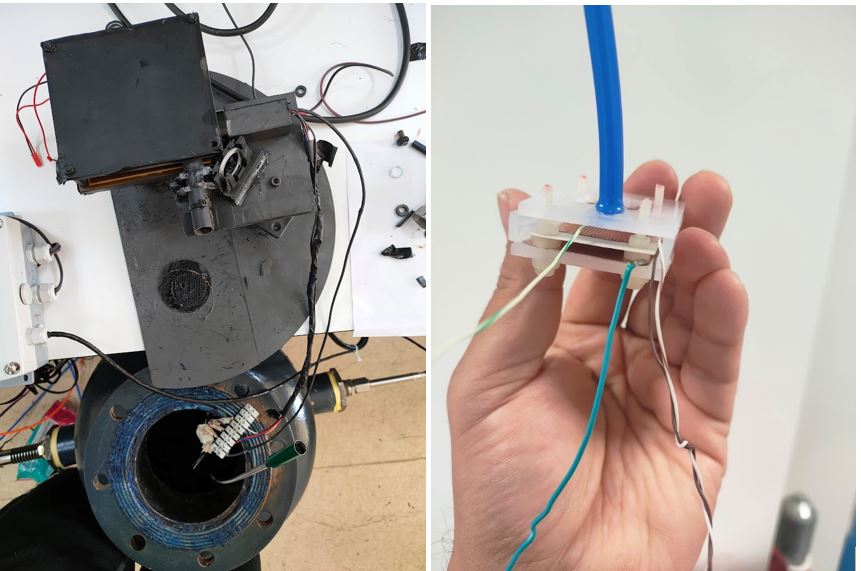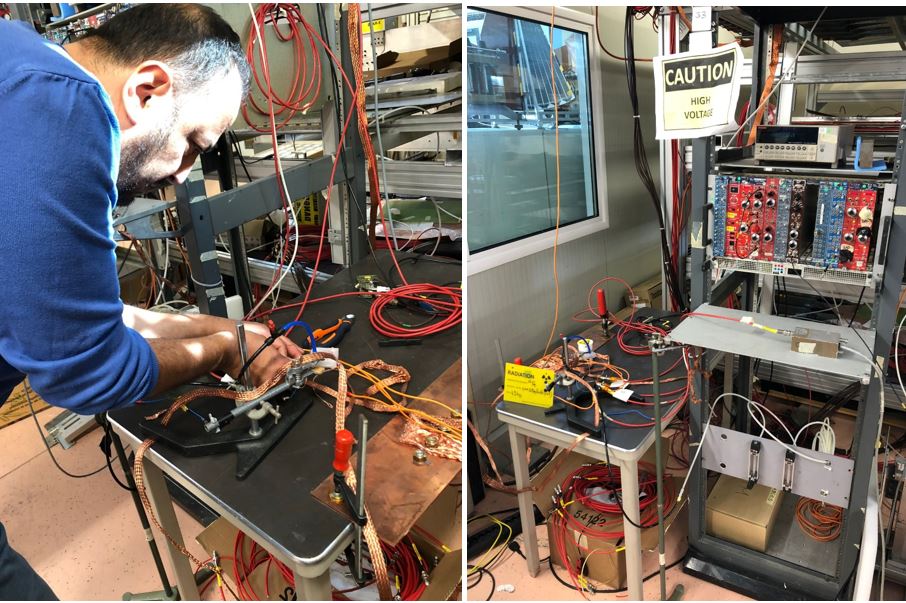

Recently, our center director Dr. Yalçın KALKAN, along with members of his team who are also NÜRDAM Advisory Board members; Istanbul University-Cerrahpaşa faculty members Assoc. Dr. Arif KÖSEMEN and Assoc. Dr. Sadullah ÖZTÜRK, visited CERN (European Organization for Nuclear Research) for 15 days. Within the scope of the joint work with CERN, Dr. Kalkan developed a unique approach to the ionic cluster problem, which has become an issue in gas particle detectors and is frequently discussed by the scientific community. He shared his findings with scientists as part of the CERN RD51 collaboration. These findings, which will soon be published in the literature, will provide new perspectives on the search for solutions to the ionic cluster problem and will, for the first time, allow simulation programs to consider the effect of ionic clusters. The research and development work is supported by TÜBİTAK.
Additionally, Dr. Kalkan and his team developed a completely domestic and original leaf by using a cellulose-derived material in the charge multiplier leaves used in GEM (Gas Electron Multiplier) detectors. This leaf was turned into a detector in NÜRDAM laboratories and subjected to signal and gain tests in the CERN RD51 laboratories. The detector managed to draw attention with its ability to produce signals at high voltages. The GEM leaf, developed using Epoxied Soybean Oil-Acrylic Acid Ester material to control conductivity, successfully passed the electrical characterization tests conducted in the CERN RD51 laboratories. This new generation GEM leaf will be turned into a detector under clean room conditions in the NÜRDAM laboratories and will then be subjected to signal and gain tests. These detectors are the first GEM detectors completed at every stage with domestic means. The work is supported within the scope of a project led by Dr. Yalçın KALKAN and conducted by TENMAK (Turkey Energy, Nuclear, and Mining Research Agency).
In addition, the European Commission's major changes in CERN's scientific organization were closely monitored, and various meetings were held with the officials. Our university's participation as a founding institute in the Gas Detectors Research Group, coded DRD1, to be formed within CERN's new structure, has been finalized, and preparations for the official contract (MoI document) are ongoing. Following the finalization of the founding institutes, an official contract will be signed between our Rector, Prof. Dr. Mustafa ALİŞARLI, and CERN Director Ms. Fabiola GIANOTTI. Thus, for the first time, NÜRDAM will continue its work as an institute officially registered with CERN. Additionally, an application has been made for our university's participation as a founding institute in the newly structured DRD3 Semiconductor Detectors Research Group, and structuring work is expected to begin. Efforts are also ongoing for a research group related to superconductivity, whose name and code have not yet been announced, and which will begin its establishment work soon.
Thus, NÜRDAM, which will conduct work in detector and sensor technologies as an official member institute in at least three different research groups within CERN, will not only contribute to our university's international recognition but also find a broad platform for new ideas and global projects.